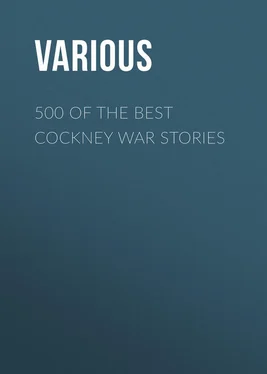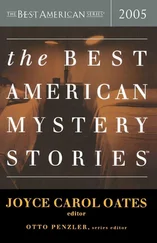Various - 500 of the Best Cockney War Stories
Здесь есть возможность читать онлайн «Various - 500 of the Best Cockney War Stories» — ознакомительный отрывок электронной книги совершенно бесплатно, а после прочтения отрывка купить полную версию. В некоторых случаях можно слушать аудио, скачать через торрент в формате fb2 и присутствует краткое содержание. Жанр: periodic, История, foreign_edu, prose_military, на английском языке. Описание произведения, (предисловие) а так же отзывы посетителей доступны на портале библиотеки ЛибКат.
- Название:500 of the Best Cockney War Stories
- Автор:
- Жанр:
- Год:неизвестен
- ISBN:нет данных
- Рейтинг книги:5 / 5. Голосов: 1
-
Избранное:Добавить в избранное
- Отзывы:
-
Ваша оценка:
- 100
- 1
- 2
- 3
- 4
- 5
500 of the Best Cockney War Stories: краткое содержание, описание и аннотация
Предлагаем к чтению аннотацию, описание, краткое содержание или предисловие (зависит от того, что написал сам автор книги «500 of the Best Cockney War Stories»). Если вы не нашли необходимую информацию о книге — напишите в комментариях, мы постараемся отыскать её.
500 of the Best Cockney War Stories — читать онлайн ознакомительный отрывок
Ниже представлен текст книги, разбитый по страницам. Система сохранения места последней прочитанной страницы, позволяет с удобством читать онлайн бесплатно книгу «500 of the Best Cockney War Stories», без необходимости каждый раз заново искать на чём Вы остановились. Поставьте закладку, и сможете в любой момент перейти на страницу, на которой закончили чтение.
Интервал:
Закладка:
I was wounded in the leg. My companion was severely wounded in both legs. Some very uncomplimentary remarks were passed between us concerning camels, particularly the one which was carrying us.
When we arrived at a field dressing-station a sergeant of the R.A.M.C. came along with liquid refreshments.
"Sergeant," said my chum, "if you give this bloke (indicating the camel) anything to drink I'm going to walk, 'cos I believe the blighter was drunk before we ever set eyes on him." — Albert J. Fairall, 43 Melbourne Road, Leyton, E.10.
It was on Passchendaele Ridge in 1917. Jerry had been giving us a hot time with his heavies. Just before daybreak our telephone line went west and we could not get through to our O.P.
I was detailed to go out and repair the line with a young Cockney from Hackney. He had only been with us a few days and it was his first time up the line.
We had mended one break when shells dropped all round us. When I got to my feet, I saw my pal lying several feet away. I escaped with a few splinters and shock. I dragged my chum to a shell-hole which was full of water and found he was badly hit about the shoulder, chest, and leg. I dressed him as best I possibly could, when, bang , a shell seemed to drop right on us and something came hurtling into our hole with a splash.
It turned out to be a duckboard. I propped my chum against it to stop him slipping back into the water. After a few minutes he opened his eyes, and though in terrible pain, smiled and said, "Lummy, Jeff, old Jerry ain't so bad, after all. He has given me a nice souvenir to take to Blighty and now he has sent me a raft to cross the Pond on." Then he became unconscious.
It was now daybreak and quiet. I pulled him out of the hole and went and repaired the line. We got him away all right, but I never heard from him. I only hope he pulled through: he showed pluck. — Signaller H. Jeffrey (late Royal Artillery), 13 Bright Road, Luton, Chatham, Kent.
We had just gone into the front line. Two of us had not been there before.
During a conversation with a Cockney comrade, an old hand, we told him of our dislike of bombs. He tried to re-assure us something like this: "Nah, don't let them worry you. You treat 'em just like blue-bottles, only different. With a blue-bottle you watch where it settles an' 'it it, but with bombs, you watch where they're goin' to settle and 'op it. It's quite simple."
A short time after a small German bomb came over and knocked out our adviser. My friend and I picked him up and tried to help him. He was seriously hurt. As we lifted him up my friend said to him, "You didn't get your blue-bottle that time, did you?" He smiled back as he replied: "'Twasn't a blue-bottle, mate; must 'ave been a blinkin' wopse." — C. Booth, 5 Creighton Road, N.W.6.
On that June morning in 1917 when Messines Ridge went up, a young chap was brought in to our A.D.S. in Woodcote Farm. A piece of shell had torn a great gap in each thigh. Whilst the sergeant was applying the iodine by means of a spray the M.O. asked, "How are things going this morning?" The lad was wearing a red heart as his battalion sign, and despite his great pain he answered: "O.K. sir. Hearts were trumps this morning." — R. J. Graff, 3/5th L.F.A., 47th Division, 20 Lawrie Park Road, Sydenham.
During the retreat from Mons it was the cavalry's work to hold up the Germans as long as possible, to allow our infantry to get in position.
One day we had a good way to run to our horses, being closely pursued by the Germans. When we reached them we were all more or less out of breath. A little Cockney was so winded that he could hardly reach his stirrup, which kept slipping from under his foot.
Just then a shrapnel shell burst directly overhead, and the Cockney, without using his stirrup, vaulted clean into the saddle.
As we galloped off he gasped, "Blimey, don't they put new life in yer? They're as good as Kruschens." — E. H. (late R.H.G.), 87 Alpha Road, Surbiton, Surrey.
Three of us were sitting on the high ground on the Gallipoli Beach watching shells dropping from the Turk positions.
A "G.S." wagon was proceeding slowly along below us, the driver huddled in his coat, for the air was chill.
Suddenly he jumped from the wagon and ran in our direction – he had heard the shell before we had.
The next moment the wagon was proceeding skywards in many directions, and the horses were departing at top speed in different directions.
The driver surveyed the scene for a moment and then in a very matter-of-fact voice said: "Blimey! See that? Now I suppose I've got to walk back, and me up all night – wot a war!" And away he trudged! — C. J. A., N.W.11.
After a retreat in May 1915 we saw, lying between our fresh position and the German lines, an English soldier whom we took to be dead.
Later, however, we advanced again, and discovered that the man was not dead, but badly wounded.
On being asked who he was, he replied in a very weak voice, "I fink I must be the blinkin' umpire." — W. King (late Royal Fusiliers), 94 Manor Grove, Richmond, Surrey.
Little "Ginger" was the life and soul of our platoon until he was wounded on the Somme in 1918.
As he was carried off to the dressing-station he waved his hand feebly over the side of the stretcher and whispered, "Don't tell 'Aig! He'd worry somethin' shockin'." — G. E. Morris (late Royal Fusiliers), 368 Ivydale Road, Peckham Rye, S.E.15.
During a most unpleasant night bombing raid on the transport lines at Haillecourt the occupants of a Nissen hut were waiting for the next crash when out of the darkness and silence came the Cockney voice of a lorry driver saying to his mate, "'Well,' I sez to 'er, I sez, 'You do as you like, and I can't say no fairer than that, can I?'" — F. R. Jelley, Upland Road, Sutton, Surrey.
I was on the Italian front in June 1918, and our battery was being strafed by the Austrians with huge armour-piercing shells, which made a noise like an express train coming at you, and exploded with a deafening roar.
An O.K. had just registered on one of our guns, blowing the wheels and masses of rock sky-high. A party of about twenty Austrian prisoners, in charge of a single Cockney, were passing our position at the time, and the effect of the explosion on the prisoners was startling. They scattered in all directions, vainly pursued by the Cockney, who reminded me of a sheep-dog trying to get his flock together.
At last he paused. "You windy lot o' blighters," he shouted as he spat on the ground in evident disgust, "afraid of yer own bloomin' shells!" — S. Curtis, 20 Palace Road, Upper Norwood, S.E.19.
In July 1918, at a casualty clearing station occupying temporary quarters in the old College of St. Vincent at ruined Senlis we dealt with 7,000 wounded in eight days. One night when we were more busy than usual an ambulance car brought up a load of gas-blinded men.
A little man whose voice proclaimed the city of his birth – arm broken and face blistered with mustard gas, though he alone of the party could see – jumped out, looked around, and then whispered in my ear, "All serene, guv'nor, leave 'em to me."
He turned towards the car and shouted inside, "Dalston Junction, change here for Hackney, Bow, and Poplar."
Then gently helping each man to alight, he placed them in a line with right hand on the shoulder of the man in front, took his position forward and led them all in, calling softly as he advanced, "Slow march, left, left, I had a good job and I left it." — Henry T. Lowde (late 63rd C.C.S., R.A.M.C.), 101 Stanhope Gardens, Harringay, N.4.
Читать дальшеИнтервал:
Закладка:
Похожие книги на «500 of the Best Cockney War Stories»
Представляем Вашему вниманию похожие книги на «500 of the Best Cockney War Stories» списком для выбора. Мы отобрали схожую по названию и смыслу литературу в надежде предоставить читателям больше вариантов отыскать новые, интересные, ещё непрочитанные произведения.
Обсуждение, отзывы о книге «500 of the Best Cockney War Stories» и просто собственные мнения читателей. Оставьте ваши комментарии, напишите, что Вы думаете о произведении, его смысле или главных героях. Укажите что конкретно понравилось, а что нет, и почему Вы так считаете.












